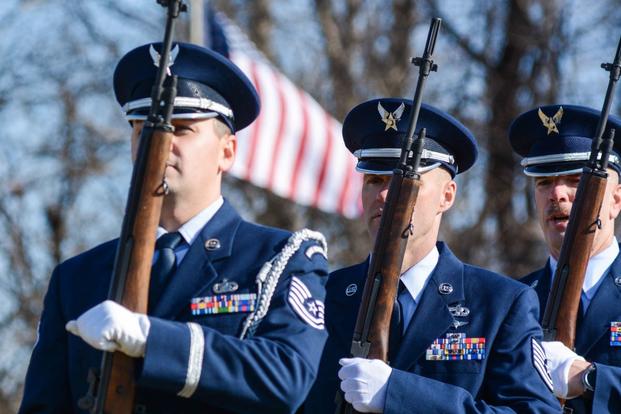Veteran funerals are a moving event. However, the costs of honoring a fallen hero is not much different than any other funeral. The cost of dying is quite high. The average cost of a funeral is nearly $10,000. Some can cost less, but some can require much more. If you are a military veteran, some of your funeral costs are covered. Your family may be entitled to specific allowances or benefits to help offset the cost of your funeral. There are also some costs that are not covered at all.
Death During Active Duty
If you are still active duty and pass while serving, all your funeral costs are covered. All the expenses are paid by the military, including preparation of the body, transportation home, the casket, and interment in a national cemetery. There is also a death gratuity paid to your next of kin. You can learn more about this on the Department of Veterans Affairs website.
Burial and Plot Allowances
The families of eligible veterans can receive what is called a burial allowance, which can be a big help in easing the costs associated with a funeral and burial. This allowance is tax-free. Some veterans are also eligible for a plot allowance, but your family will need to provide a receipt to show how much was paid. The amount you are eligible for will depend upon a few factors. For instance, those who pass in a VA hospital receive a $780 burial allowance as well as $780 for a burial plot. For those who die of service-connected injury or illness, the VA will provide a $2,000 burial allowance. If death is not service connected, the benefit is $300.
Cemetery Costs
If your discharge from the military was anything other than a dishonorable discharge, you are eligible for free burial in a national VA cemetery. Many states in the US have their own veteran’s cemeteries. In most cases, eligibility for burial in any of these cemeteries is the same as federal VA cemeteries. Certain veterans may also be eligible for burial in Arlington National Cemetery. If you prefer to be buried in a private cemetery, the VA may provide a small plot allowance. Some states may also help with burial costs.
What Else is Covered in Veteran Funerals?
Veterans are eligible for a free headstone or grave marker if buried in a national cemetery or state veterans’ cemetery. You can also receive a free headstone or marker if you are buried in a National Park cemetery. The VA offers many types of markers, including upright headstones and flat grave markers. Inscriptions are also covered, which may include name, dates of birth and death, highest rank, war emblem, and belief emblem. The government pays for a replacement headstone or marker if yours becomes illegible, deteriorates, or is vandalized or stolen. A flag is also provided by the VA to drape over the casket or accompany the urn and is given to your family following the funeral service.
What Isn’t Covered for Veteran Funerals?
Some expenses are not covered for a veteran’s funeral. The VA does not have to include embalming, casket, cremation, urn costs, or transportation costs. Some of these expenses may be eligible for reimbursement, however. There are also some exceptional circumstances where some of these costs may be covered. For instance, if you pass while in a VA hospital or nursing home, the VA may cover the cost of your transportation to a national cemetery, if the cemetery is no further than your last address.
While some of your funeral costs may be covered and you may be eligible for certain benefits to offset the cost of your funeral, not everything is covered. Make sure that you stay on top of your benefits, too, as they can change. To help cover the remaining costs of your funeral, you may want to consider setting up a savings (or joint savings) account or taking out an insurance policy, such as final expense insurance. You can do this by contacting Benefit Choice Direct and speaking with one of our trusted experts. This way, you do not have to worry about leaving your family with a significant financial burden in addition to the grief they will be dealing with upon your death.

